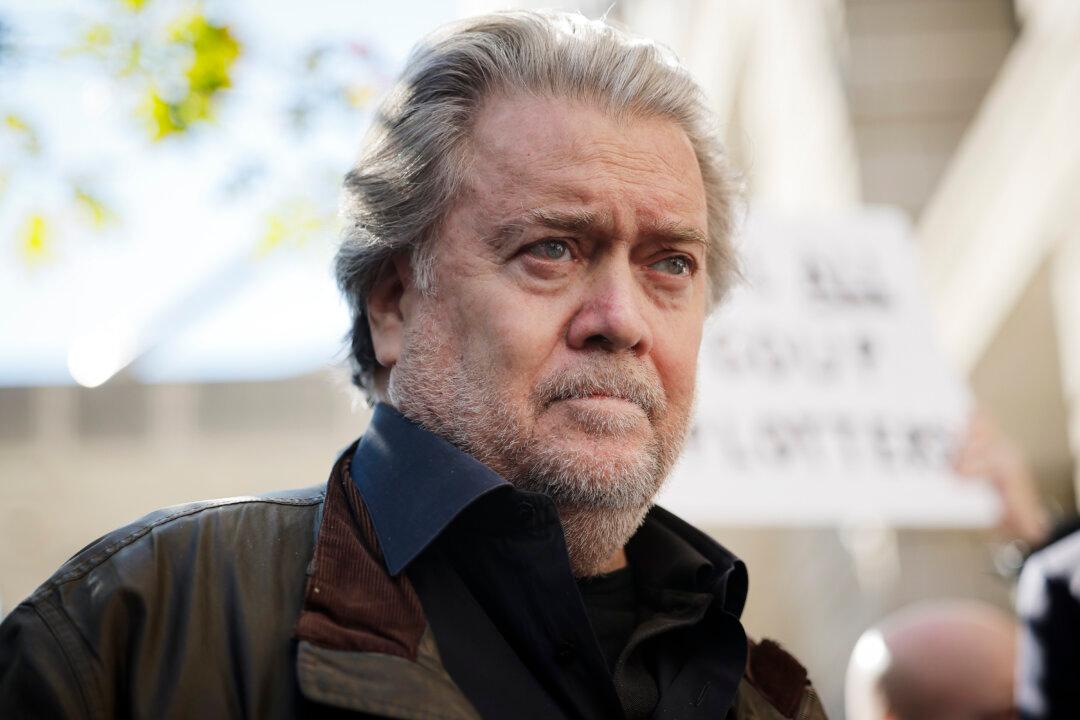Steve Bannon on June 21 asked the U.S. Supreme Court to delay his prison sentence as his appeal of a contempt of Congress conviction works its way through the court system.
“If Mr. Bannon is denied release, he will be forced to serve his prison sentence before this Court has a chance to consider a petition for a writ of certiorari, given the Court’s upcoming summer recess,” lawyers for Mr. Bannon said in the emergency motion.





